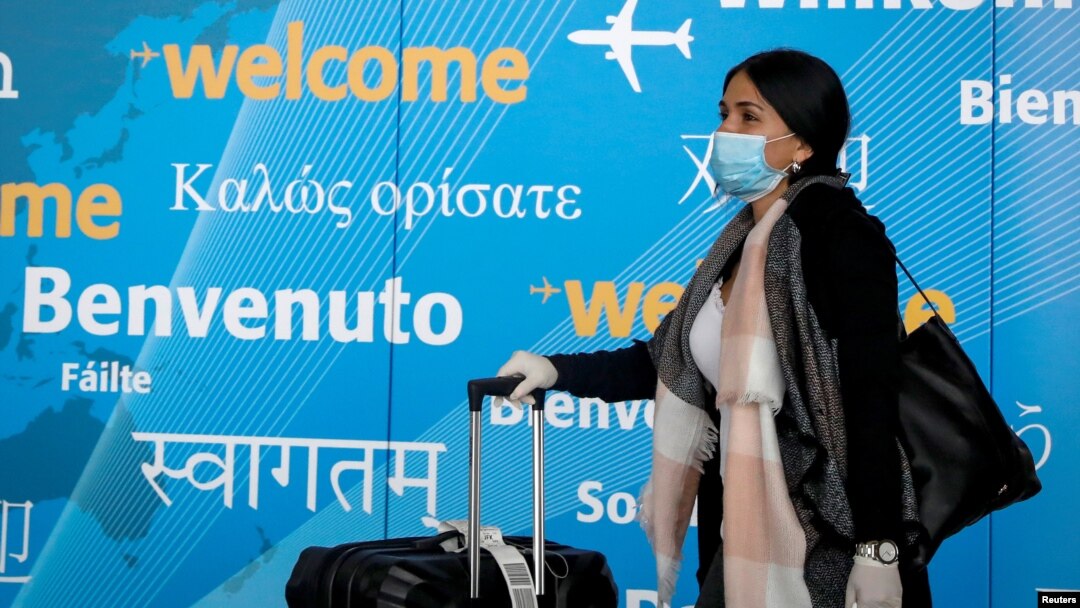The United States said Monday that starting in early November it will ease its coronavirus restrictions for foreign travelers arriving in the country.
Foreign travel to the U.S. had been largely curbed during the 18-month pandemic, even as European nations in recent months eased restrictions on American travelers ahead of the summertime vacation season.
Under the new U.S. policy, White House COVID-19 coordinator Jeff Zients said foreign travelers will again be allowed into the country if they can demonstrate proof of being fully vaccinated before they board a flight and show proof of a negative COVID-19 test administered within three days of their flight.
British Prime Minister Boris Johnson applauded the U.S. action, saying foreign travelers will be able to get to the U.S. before its annual Thanksgiving holiday, celebrated this year on November 25.
“That's a great thing,” Johnson said. "I thank the president (Joe Biden) for progress we have been able to make.”
French Foreign Minister Jean-Yves Le Drian told reporters at the United Nations in New York that “it was time” for the U.S. action, adding, “Better late than never.”
The U.S. Travel Association trade group also welcomed the move, saying it will “help revive the American economy.”
"This is a major turning point in the management of the virus and will accelerate the recovery of the millions of travel-related jobs that have been lost due to international travel restrictions,” U.S. Travel Association President and CEO Roger Dow said in a statement Monday.
Fully vaccinated travelers to the U.S. will not be required to be quarantined, as has been the case in some foreign countries.
But in its effort to push millions more Americans to get inoculated, the Biden administration said unvaccinated Americans returning from overseas will need to be tested within a day of their flight and again after they return home.
More than 181 million Americans have been fully vaccinated, according to government health officials, but it is estimated that 70 million people eligible for the vaccine have so far declined, for one reason or another, to get vaccinated.
The new policy replaces a patchwork of restrictions first instituted by former President Donald Trump last year and tightened by Biden earlier this year that restricted travel by foreigners who in the prior 14 days had been in Britain, the European Union, China, India, Iran, Brazil or South Africa.
Zients said the new policy “is based on individuals rather than a country-based approach, so it's a stronger system."
He said the U.S. Centers for Disease Control and Prevention will also require airlines to collect contact information from international travelers to facilitate contact tracing if there is a coronavirus outbreak related to foreigners arriving in the U.S.
It is uncertain under the new policy which vaccines would be acceptable to U.S. authorities, with Zients saying that would be left up to the CDC. Vaccines made by Pfizer-BioNTech, Moderna and Johnson & Johnson are used in the U.S.
Separately on Monday, the United States extended its coronavirus restrictions at land borders, which prevents nonessential travel with Mexico and Canada.
Margaret Besheer contributed to this report. Some information also came from Reuters and The Associated Press.


